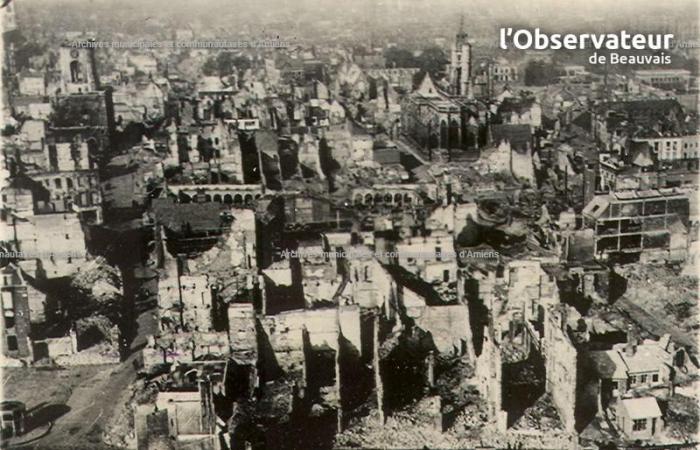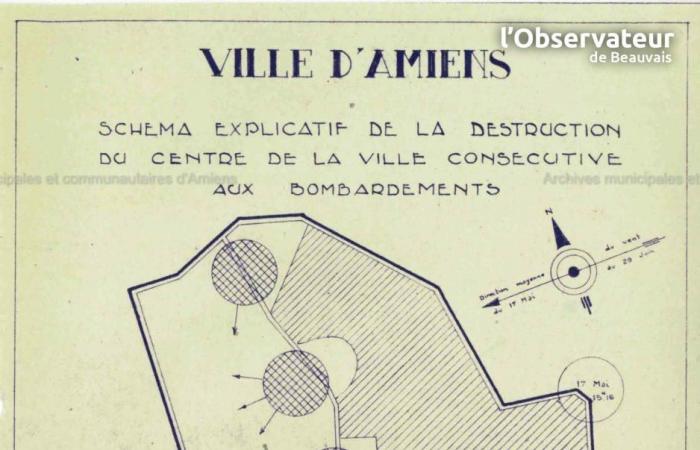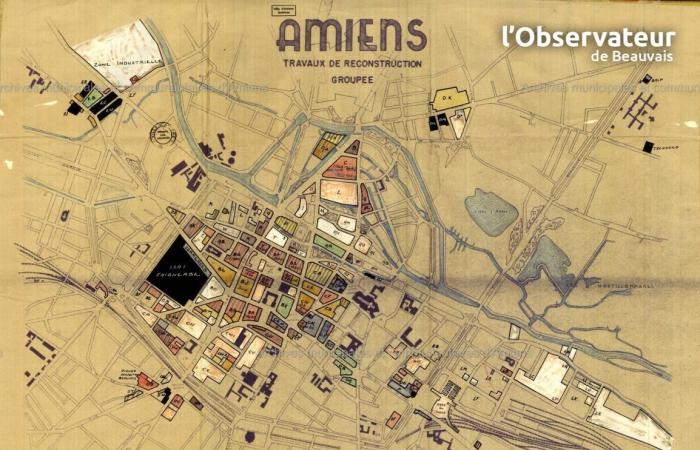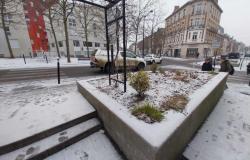In this year 2025, we commemorate history with the 80th anniversary of the end of the Second World War. For Amiens, this was a major turning point, because the city, released August 31, 1944was emerging from a devastating conflict. After the war, it was not only necessary to relocate the inhabitants, but also to rebuild an almost completely destroyed city.
A devastated city
At the end of the war, Amiens was in ruins. Nearly 60% of the city was destroyed, and 75% of the city center was reduced to rubble. Allied bombings had left the city in a state of desolation. However, after the liberation by British troops and resistance fighters, it was necessary to think about the future.
The reconstruction project
As early as 1940, the idea of rebuilding Amiens was on the table, but it was especially after 1944 that the projects accelerated. In 1942, a reconstruction plan was adopted, and in 1947 the official cornerstone was laid. Pierre Dufauthe architect in charge of the reconstruction, worked with his colleagues to restore the city to a modern structure while preserving its major historic axes.
The priority was to rehouse the people of Amiens, many of whom no longer had housing after the destruction. At the beginning, temporary barracks were installed, before giving way to modern apartments, equipped with heating, running water and bathrooms, to improve the comfort of the inhabitants.
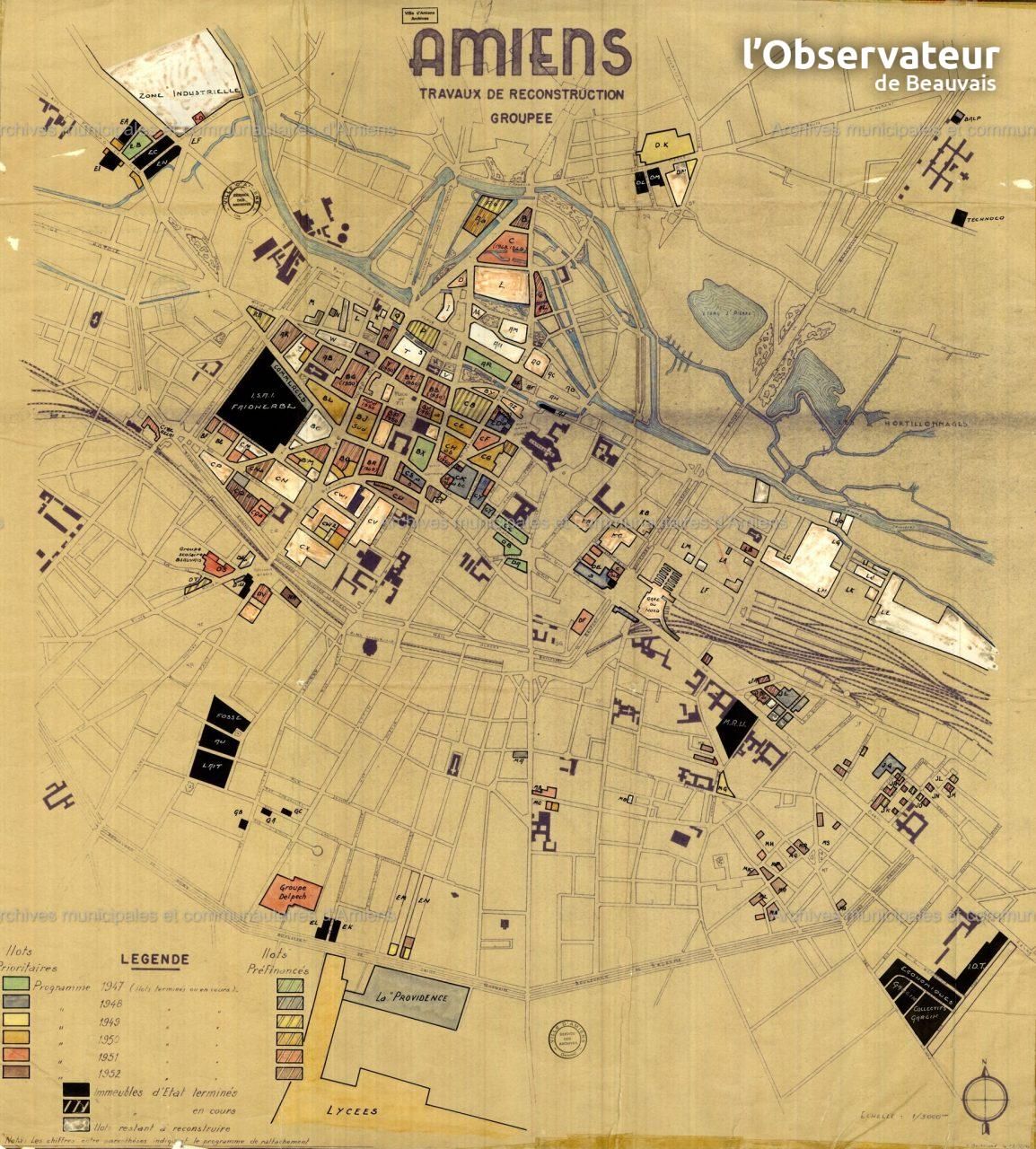

Innovations to rebuild
The shortage of materials pushed architects to innovate. Reinforced concrete and concrete blocks made from bricks recovered from the rubble were used to speed up the reconstruction. These techniques made it possible to construct solid and modern buildings more quickly.
Many emblematic constructions have seen the light of day, such as the Perret TowerTHE Gare du Nord and Saint-Roch stationsand the School City. These buildings are now an integral part of the urban landscape of Amiens and bear witness to the city's renewal.
An exhibition to discover the history of reconstruction
If you want to know more about the reconstruction of Amiens, don't miss the exhibition “Rebuilding after 1940” au CIAP (Amiens Métropole Architecture and Heritage Interpretation Center). It presents numerous documents from the Municipal and Community Archives of Amiens. You will be able to discover photos, plans and testimonies that tell how the city was rebuilt.
Also read: Somme – Orientation: Find your training at the 2025 high school student fair
Somme – Urban planning: A new play area for children in the Platanes district
Somme – Urban planning: Swimming pools will remain municipal thanks to the support of Grand Roye

